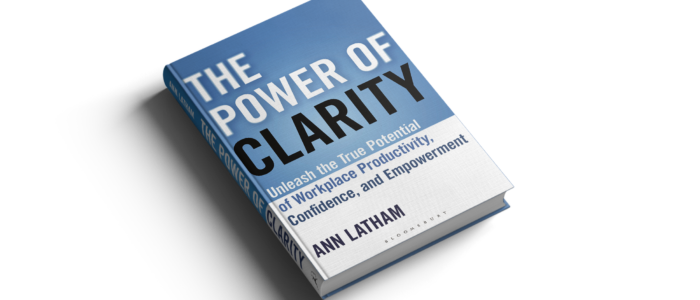My sympathies lie with managers and knowledge workers. They are hard working, devoted, and always expected to accomplish more with less. And while you could say the same for other employees, the managers and knowledge workers face special challenges—challenges unrecognized and unappreciated by their supervisors, and even by themselves. To make these challenges crystal clear, I’ll divide the workforce into two categories based on one simple criteria:
I am so honored and appreciative that these amazing, busy people took the time to read my newest book and provide an endorsement!
Do you ever wonder how patient you should be? I’ve got executive advisory clients who struggle with this question. Some of them are naturally impatient, know they need to work at being more patient, but worry that being too patient sends the wrong message. Do you ever feel that way? So what can you do? Here is the short answer:
I remember being given a task as a new intern years ago. The request was so vague and confusing that the first thing I did was to dig into the project and try to figure out what my manager was asking of me. A week later I went back to him with a list of concrete objectives. He agreed. I smiled and said I was finished. This is what you call lucky delegation. I had just completed the task that he expected would keep me busy for the whole summer. That’s not the norm. More common results include: Continue Reading
It’s Leap Day. A whole extra bonus day! And, yet, it doesn’t feel that way. Here I am finishing my newsletter instead of doing something unusual on this gift we receive only once every four years. Why? Because I didn’t recognize the gift, protect it, and plan ahead to savor it. I could have made this a celebratory day shared with good friends. I didn’t. There is an important lesson in this.
Even my best clients have been known to forget some of the most critical distinctions, so I thought some reminders were in order.
In a recent article of mine, “This Is Your Only Life. Are You Putting Yourself First?,” I encourage you to put yourself first because doing so not only makes you healthier mentally, physically, and emotionally, but it also makes you more productive and effective. One reader responded by saying the ideas were nice and simple in theory, but not realistic. He blamed the “work landscape” for making them impossible. I thought that reaction might be quite common and, thus, worthy of discussion. There are three problems with this reader’s response:
Increased clarity is the best option for improving profits, performance, and engagement. The reason more leaders aren’t pursuing greater clarity is they don’t recognize the lack of clarity that permeates their organizations and consumes their profit. A good part of that problem starts with the belief that they themselves are clearer than they really are. Where do you stand?


